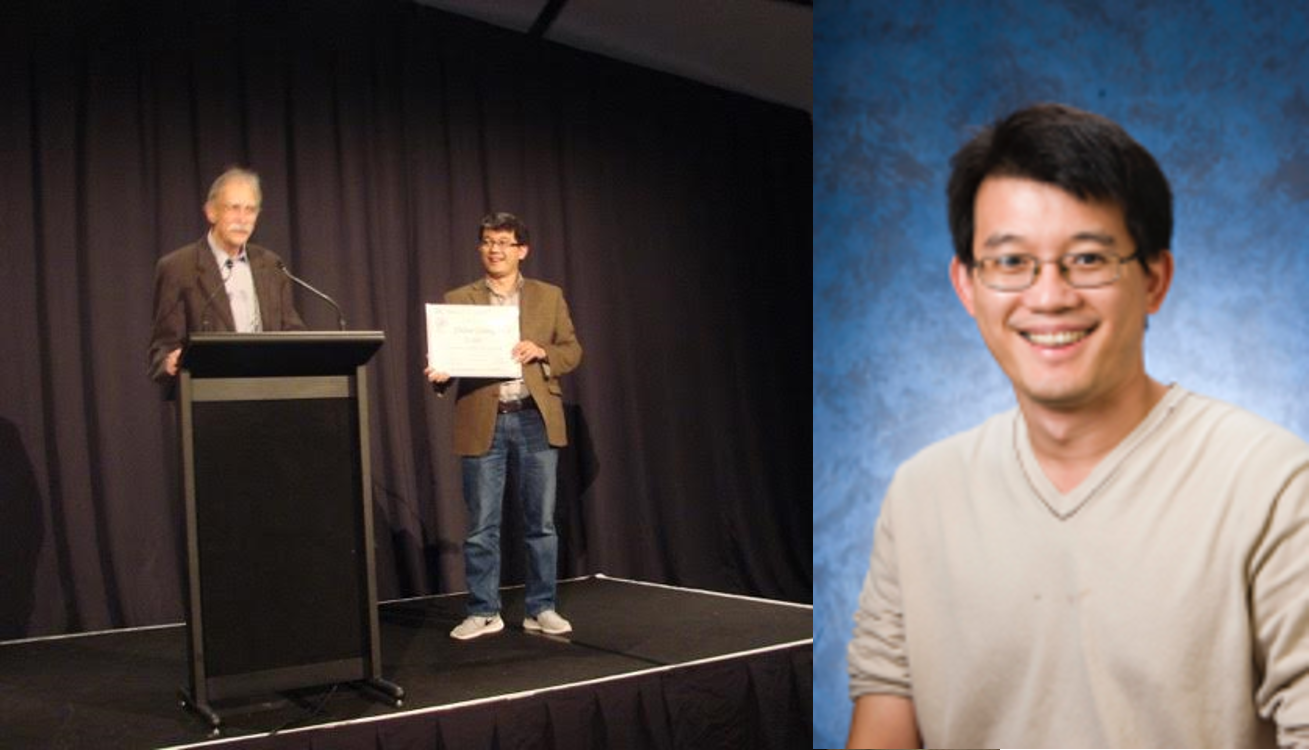Zhibo Zhang, assistant professor of physics, has his mind in the clouds. Fortunately, Zhang is an atmospheric physicist focusing on the role clouds play in climate, so his eye on the sky has resulted in important research findings leading to his recognition as a rising star in his field.
The International Radiation Commission (IRC) presented Zhang with its Young Scientist Award at the quadrennial IRC symposium in Auckland, Australia, April 17–21. This prestigious recognition is given to only one scientist every four years who “has made recent noteworthy contributions to radiation studies and is regarded as having great potential to become a leading radiation scientist in the future.”
Zhang received his Ph.D. in atmospheric physics from Texas A&M University in 2008 and joined the Goddard Earth Sciences and Technology Center at UMBC in January 2009, before starting at UMBC’s Joint Center for Earth Systems Technology in 2011. After just a short time at UMBC, he took on the role of graduate program director for atmospheric physics and was promoted to associate professor. In 2013 he received a NASA New Investigator Program Award in Earth Science.
Zhang’s work focuses on determining how clouds contribute to climate change in the long term, which is a deceptively difficult question to answer. It requires understanding the “microphysics” of nanoscale cloud droplets as well as the movements of large blocks of clouds tens of thousands of kilometers across. Zhang and his team analyze data from several Earth-orbiting satellites to validate and tweak innovative numerical models they develop to predict the role of clouds in climate.
For example, clouds cover approximately 60 percent of Earth’s surface at any one time and shield the planet from the sun’s radiation, cooling the Earth. However, smoke from fires or other air pollutants can gather above clouds, absorb heat, and prevent it from escaping the atmosphere, contributing to warming. Zhang’s lab examines data from areas where this occurs and develops models for how this phenomenon affects climate. By using many kinds of data, “we begin to put the pieces of the puzzle together,” Zhang says.
“Zhibo is a very talented young faculty member whom the department is proud to have as a member,” says physics department chair Michael Hayden. Zhang introduced curriculum revisions for the atmospheric physics program that were adopted by the faculty, and “his new vision will guide us through the next decade and ensure that the program will continue to grow and prosper,” Hayden says.
Due to its international stature, the benefits of Zhang’s achievement will extend beyond the physics department. “The award will increase my visibility and the visibility of UMBC,” says Zhang, who shares that the environment at UMBC has been perfect for him to pursue his research. “People really support you and encourage you,” he says. He’s delighted to have “a young and energetic team” working in his lab, all of them with their heads in the clouds.
Tags: CNMS, International Stories, majoraward, Physics, Research

